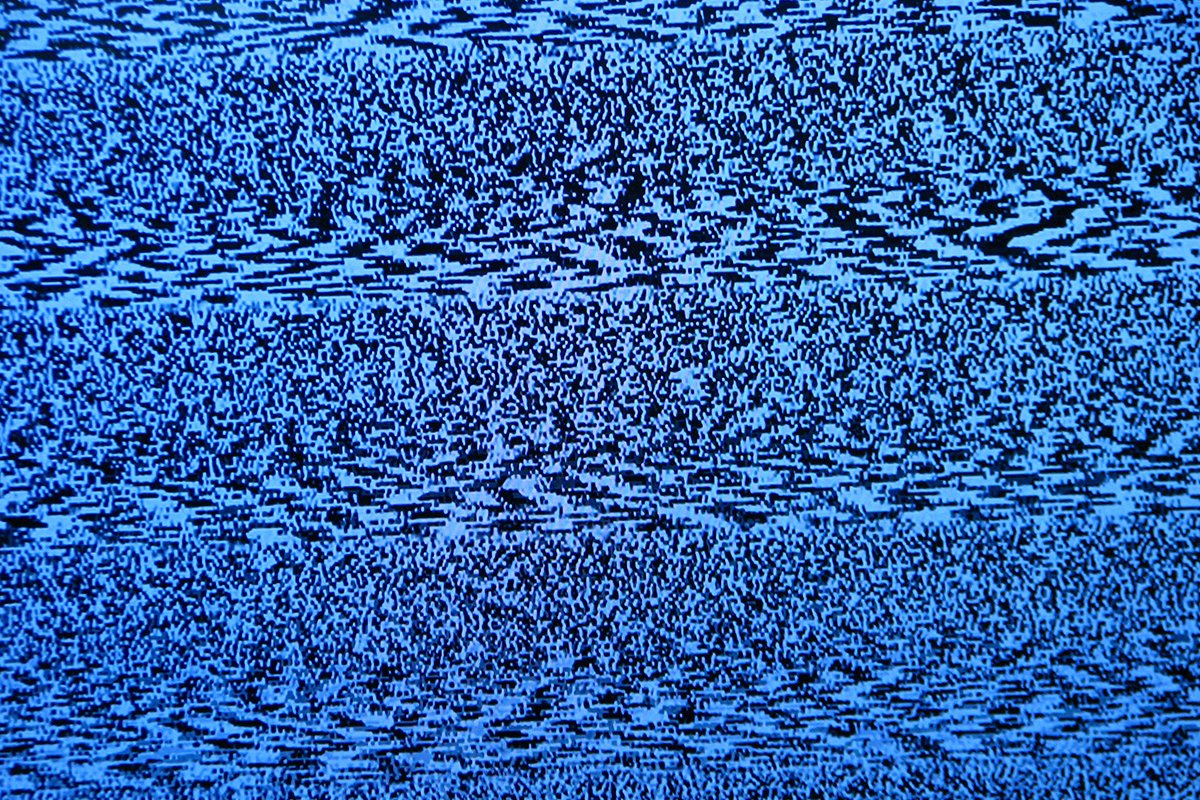
Attention, Please
A culture of distraction may detract from religiosity and lead to lazy secularism.
Thanks for starting to read this article. Best of luck making it all the way to the end!
Studies show that the majority of Americans read headlines but rarely read news stories, we move our attention from subject to subject more rapidly than ever before, and the pandemic accelerated our tendency to focus on tweets and TikToks at the expense of lengthier media. We look at each webpage for an average of fifty-four seconds. As a society, we have too many tabs open.
Though the widely-circulated report that humans now have shorter attention spans than goldfish has been disproven, I’m not exactly reassured by the fact that I could beat a goldfish in a staring contest. That this story seemed plausible testifies to a general sense that we cannot focus as much as we used to. As one Twitter user bemoaned, “This can’t be the same brain I was using to read 750 page novels in 3 days during middle school.”
Psychologists disagree about whether average attention spans have gotten shorter and about whether “attention span” is even a meaningful concept. But what is indisputable is that people are switching their attention from one thing to another at an unprecedented rate. By and large, we can focus on one task for hours on end, but we don’t. Our phones or other sources of diversion are enticing us away even from the tasks we enjoy and care about.
Speaking personally, I can still read a book uninterrupted for several hours... if I’m on an airplane and have no other options. I can still watch a long movie... if I’m in a movie theater and devices are off. More frequently, I’m looking at my phone to distract myself from the TV show I put on to distract myself from my lunch.
What effect does all this distraction have on religion? If people’s ability to focus is weakening, how is that shaping religious reflection and practice?
In the seventeenth century, Blaise Pascal theorized that diversion is the principal threat to religious conviction. When we actually take the time to reflect on the human condition, we are confronted with our own wretchedness and our own glory. Humans are simultaneously the most brilliant beings in the universe and frail, miserable, petty things. If we actually concentrate our attention on our own situation, we are struck by this paradox and inevitably search for a resolution; a resolution that, for Pascal, could only be found in the humble practices of the Christian faith. The crucial word here is “if,” since people tend to do everything in their power to distract themselves from their existential reality. One of the central points in Pascal’s Pensées is to make readers aware of how much of our time is spent desperately seeking diversion. We gamble, hunt, argue, flirt, worry, plan, gossip, and complain our way through the day. Pascal writes, “All of humanity’s problems stem from man’s inability to sit quietly in a room alone.” Our ability to apprehend spiritual truth depends on our willingness to truly fix our attention on what matters instead of flitting from preoccupation to preoccupation.
Centuries later, Simone Weil also emphasized the centrality of attention for the spiritual and moral life. Weil writes, “Not only does the love of God have attention for its substance; the love of our neighbor, which we know to be the same love, is made of this same substance.” Schoolwork, including doing difficult geometric problems, cultivates our capacity to pay attention. Thus, for Weil, the principal reason why we study is to develop our attentive faculties so we can pay attention to God in prayer and pay attention to those who suffer. Technologies that overstimulate us and weaken our attentive faculties will inevitably have consequences for our religious practice.
An objection must be raised. Obviously, there are people with attention deficit disorders who are compassionate, profound, and more than capable of confronting their own existential duality. And I have to assume that taking Adderall does not necessarily bring one closer to God. Thus, even if we find Pascal’s and Weil’s arguments compelling, any treatment of the religious and moral dimensions of attention must make careful distinctions instead of sweeping generalizations.
Though we may not be able to discern the relationship between an individual’s ability to focus and their religiosity, we can theorize about the relationship between a culture’s perceived ability to focus and its religiosity. The mere perception of a diminished average attention span has effects on a culture. As media scholar Michael Newman writes, “If producers believe that their audience’s attention is weak or fleeting, then they have a special incentive to create textual experiences that make a strong appeal on the audience’s attention.” Companies create media to be consumed in smaller and smaller bites. So even if we can focus our attention, we are being bombarded with messages designed to grab our attention just for a moment. The shared sense that people cannot pay as much attention as before is contributing to, and is reinforced by, a shift in the way messages are crafted, and religious media are no exception.
With all of this in mind, Nat Goldthwaite theorizes that this culture of overstimulation is leading us into a sort of lazy secularism. They write, “It is the entertainment-seeking/dopamine-seeking (and from the corporate side, profit-seeking) trend that is secularizing the world in a pretty dumb way: not by making clear to people that ‘God is dead’ or that religions involve coercion or unsubstantiated claims about reality which science could (purportedly) do better, but rather, by fundamentally disrupting/confusing/meddling with the sensory ‘organ’ used for sensing ‘the religious’ dimension of the world. It doesn't secularize in a positive or even a conceptual sense; it secularizes the world in a physiological, blunt, almost surgical/operative sense of removing a faculty for religious experience before people even have the chance to use it."1
That is to say, the dynamics of attention in the twenty-first century are making many people too overstimulated to pay attention to religious matters. Meanwhile, the same dynamics make others religious but not spiritual—superficially identifying with a religious group and consuming quick-service religious media, all the while being existentially adrift.
This diagnosis is speculative, but it may shed light on the ambivalence of secularization in contemporary culture. It may be the case now, as Martin Luther King said in a different context, that “we have allowed our technology to outrun our theology.”
1 This quotation comes from personal correspondence with the author.
Header photo by fdecomite via Creative Commons. Minimally cropped and used with CC Attribution 2.0 License.


